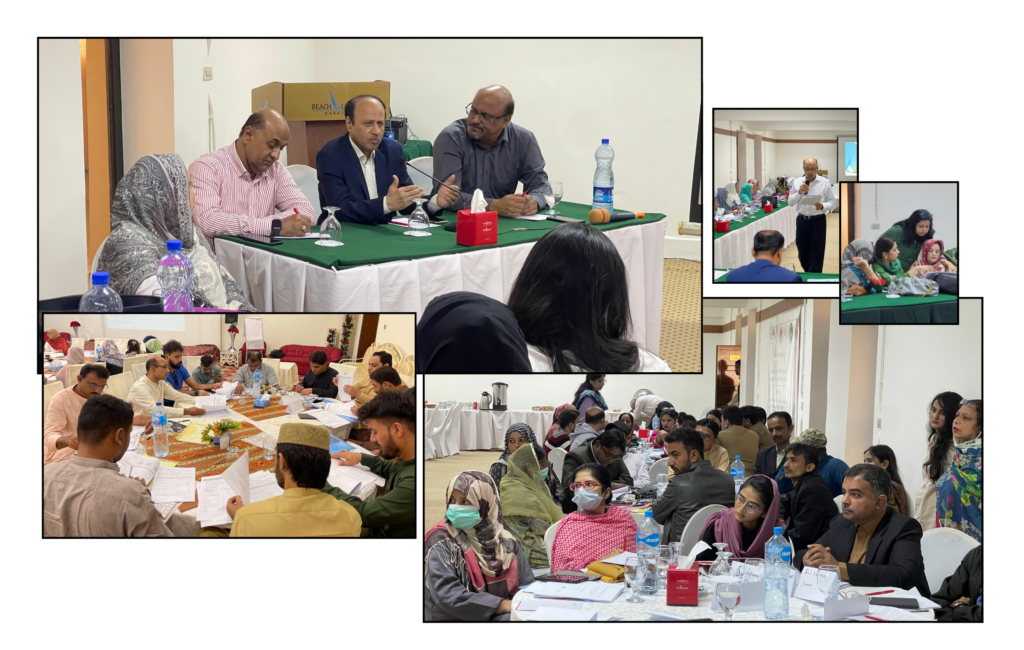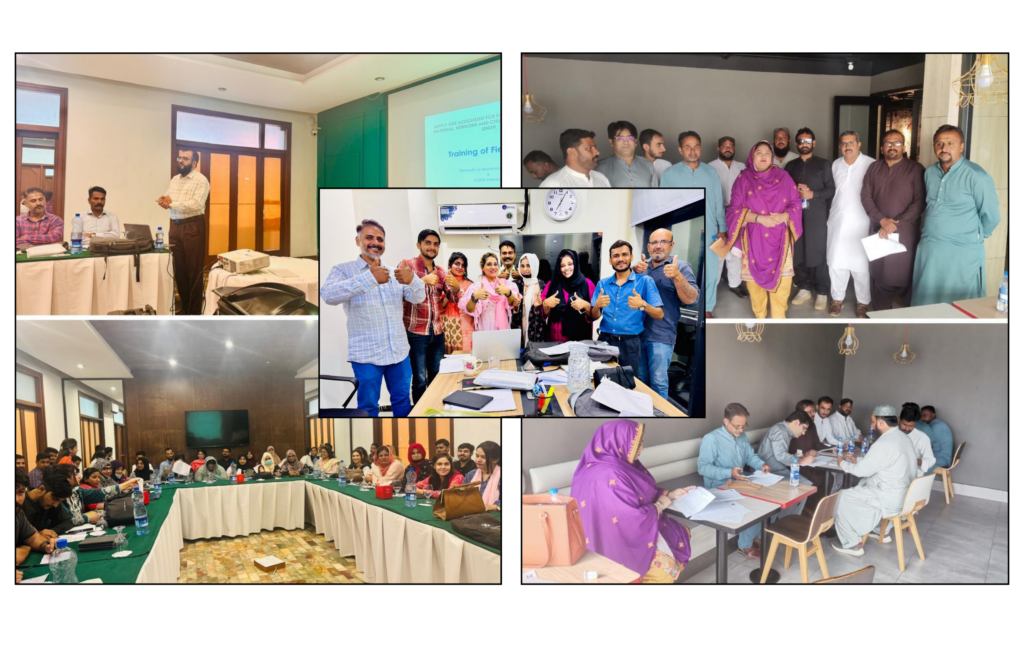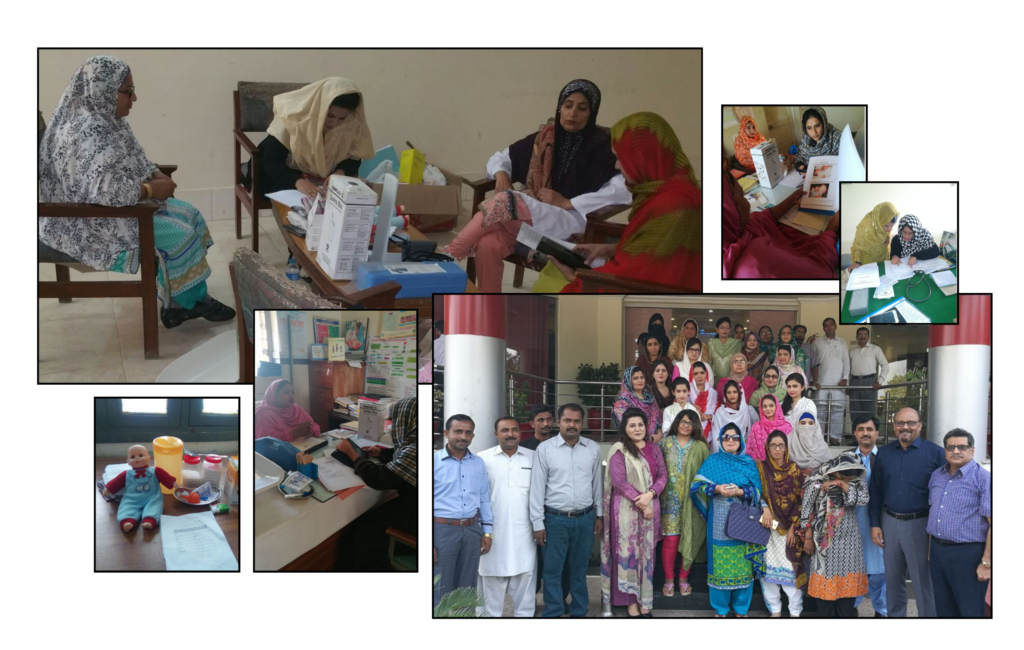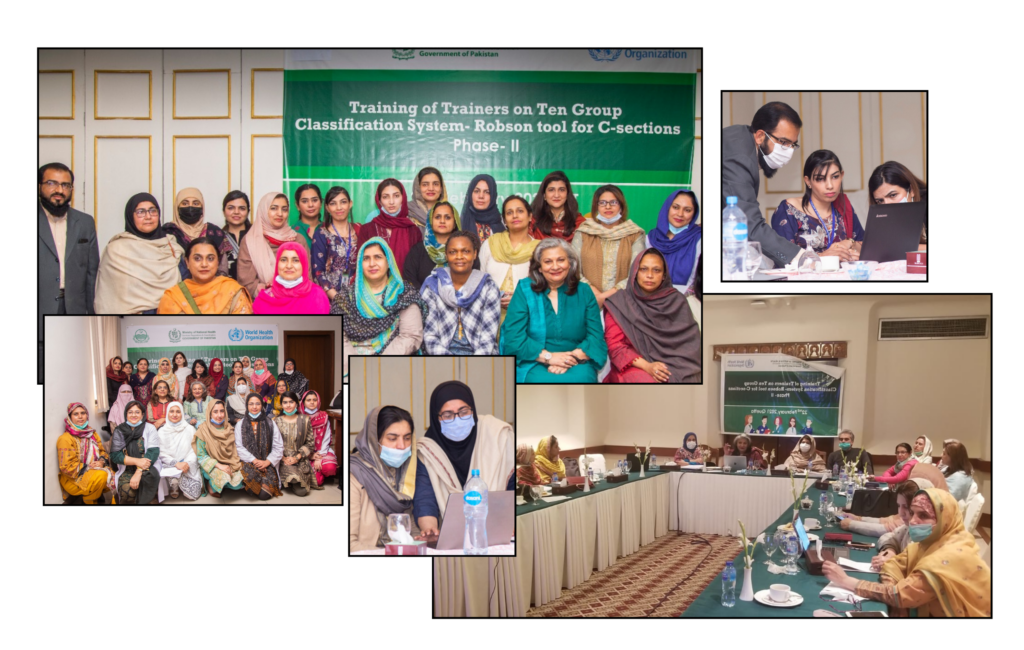RMNCH & FP
-
Strengthening Postpartum Family Planning (PPFP) in Sindh, Pakistan (2025)
-
Baseline Assessment on Family Planning Supply Side in SINDH (2024-2025)
-
Mapping of Health Care Establishments across 30 Districts of SINDH (2024)
-
External evaluation of the Umeed-e-Nau (UeN) initiative to support women and girls in Pakistan (2017 - 2023)
-
Technical Support in Strengthening the process of Institutionalization of Robson’s Ten Group Classification System (TGCS) for Rationalizing the use of Caesarean Section in Pakistan (April-Nov 2021).
-
Development of Situation Analysis Report and digital data management Application and dashboard for Robson Classification (Aug-Oct 2020).
-
Factors behind the growing rate of unnecessary caesarian sections in Three Tertiary care hospitals of Rawalpindi, Pakistan (April-Nov 2019)
-
A community-based implementation of a low-cost evidence-based toolkit and parenting program for improving brain development in newborns (Oct 2014-Sep 2016).
-
Third Party Evaluation of the Reproductive Health Initiatives with Adolescents (Jan-Feb 2014).
To scale postpartum and post-pregnancy family planning services in high birth-volume facilities and enhance family planning access for urban poor communities in Sindh through outreach and mobilization. Integrating PPFP services into maternal and child health programs in Sindh is essential to address the high unmet need for family planning and improve health outcomes for women and children. By implementing a comprehensive and integrated approach, we can empower women with the knowledge and means to make informed reproductive choices, ultimately contributing to the well-being of families and the socio-economic development of Sindh.
Key objectives of this initiative are (i) To increase the use of post-partum family planning (PPFP) in Sindh province by increasing the availability, acceptability and utilization of PPFP services at health care facilities (ii) Establish a comprehensive ecosystem for PPFP and general Family planning through outreach and community mobilization model serving 6 urban poor communities in Sindh (iii) Develop strategies to ensure that PPFP services are sustained and scaled up to include other geographical areas
 A comprehensive assessment of family planning supply side constraints in health systems and services is being undertaken in all districts of Sindh province of Pakistan funded by the Bill & Melinda Gates Foundation (BMGF). The Center for global public health (CGPG) Pakistan-University of Manitoba (UM) in partnership with Aga Khan University (AKU) is undertaking this task. The assessment is expected to provide focused guidance on strategies to address supply side gaps and rapidly scale up provision of family planning services for women with unmet need.
A comprehensive assessment of family planning supply side constraints in health systems and services is being undertaken in all districts of Sindh province of Pakistan funded by the Bill & Melinda Gates Foundation (BMGF). The Center for global public health (CGPG) Pakistan-University of Manitoba (UM) in partnership with Aga Khan University (AKU) is undertaking this task. The assessment is expected to provide focused guidance on strategies to address supply side gaps and rapidly scale up provision of family planning services for women with unmet need.
The project will lead to two outcomes/components: Family planning (+MNCH as applicable) supply-side baselines and Synthesis and strategic planning.
The first outcome will be achieved through two main activities: 1) detailed mapping and assessment of all facility-based (public and private) and community services; 2) health systems analysis. The first component will be focused on describing the availability and distribution of family planning (+MNCH) services and assessing the readiness, content and quality of services. The second component will assess key health system constraints that affect the delivery of family planning (+MNCH) services in Sindh, Pakistan.
Funding Agency: 
 A comprehensive assessment of family planning supply side constraints in health systems and services is being undertaken in all districts of Sindh province of Pakistan funded by the Bill & Melinda Gates Foundation (BMGF). The Institute of Global Public Health (IGPH)-University of Manitoba (UM) with collaboration with Aga Khan University (AKU) is undertaking this task. The assessment is expected to provide focused guidance on strategies to address supply side gaps and rapidly scale up provision of family planning services for women with unmet need.
A comprehensive assessment of family planning supply side constraints in health systems and services is being undertaken in all districts of Sindh province of Pakistan funded by the Bill & Melinda Gates Foundation (BMGF). The Institute of Global Public Health (IGPH)-University of Manitoba (UM) with collaboration with Aga Khan University (AKU) is undertaking this task. The assessment is expected to provide focused guidance on strategies to address supply side gaps and rapidly scale up provision of family planning services for women with unmet need.
The project will lead to two outcomes/components: Family planning (+MNCH as applicable) supply-side baselines and Synthesis and strategic planning. The first outcome will be achieved through two main activities: 1) detailed mapping and assessment of all facility-based (public and private) and community services; 2) health systems analysis.
For the project, a letter of intent (LOI) was signed between CGPH Pakistan (local collaborative office of IGPH) and Sindh Health Care Commission (SHCC) in which SHCC will be providing list of all relevant registered private health facilities in Sindh. Also, UoM/CGPH-Pakistan will provide support to SHCC for mapping of all private health facilities in Sindh and for developing a digital facility registration database/App that will include facility geotag, detail scope of services and other variables. This will enable categorizing/ recategorizing of facilities based on scope and link the category to applicable quality standards.
Funding Agency: 
 In eight (8) selected districts of Sindh, Punjab and Balochistan provinces. The objectives of the evaluation are to measure, analyze and report the progress achieved by the UeN in scaling up evidence-based interventions. UeN initiative aims to address maternal and neonatal morbidity, mortality and childhood mortality due to pneumonia and diarrhoea by:
In eight (8) selected districts of Sindh, Punjab and Balochistan provinces. The objectives of the evaluation are to measure, analyze and report the progress achieved by the UeN in scaling up evidence-based interventions. UeN initiative aims to address maternal and neonatal morbidity, mortality and childhood mortality due to pneumonia and diarrhoea by:
- Improving community level performance and quality of care in facilities
- Improving methods and capacity to utilize public health information systems in Pakistan, to measure and monitor progress in the coverage and outcomes of programs to reduce maternal, neonatal and child morbidity and mortality
- Accelerating the adoption and scaling-up of evidence-based interventions in Pakistan through support of the development of knowledge products based on UeN results and knowledge translation initiatives with key policy and program leaders
The external evaluation is being covered by three evaluations i.e. baseline, midline and end line following different approaches to achieve the project objectives.
Funding Agency: 
 The project was implemented in public sector hospitals across all four provinces, GB & AJK. The key results of the project were:
The project was implemented in public sector hospitals across all four provinces, GB & AJK. The key results of the project were:
- Modifications/amendments made in mobile application and website, user manual guidelines for android application
- Facilitation in the process of CS (Classification System) data collection on hospital deliveries by using Robson TGCS mobile application
- Remote monitoring of quality of CS data input and feedback quarterly
- Assisted health facilities personnel on process of TGCS report generation and to assess the quality of data and provide feedback
Funding Agency: 
 The project was implemented in public sector hospitals across all four provinces, GB & AJK. The key results of the project were Development of Situation Analysis Report and digital data management, application and dashboard management for Robson Classification.
The project was implemented in public sector hospitals across all four provinces, GB & AJK. The key results of the project were Development of Situation Analysis Report and digital data management, application and dashboard management for Robson Classification.
Funding Agency: 
 The purpose of this research was: Study the overall burden of Cesarean sections in public health hospitals in Pakistan. The study also identified the unnecessary cesarean sections along with associated factors to provide recommendations to avoid unadvised cesarean sections.
The purpose of this research was: Study the overall burden of Cesarean sections in public health hospitals in Pakistan. The study also identified the unnecessary cesarean sections along with associated factors to provide recommendations to avoid unadvised cesarean sections.
Funding Agency: 
 The project was implemented in two tehsils of district Attock, Pakistan. The key results of the projects were:
The project was implemented in two tehsils of district Attock, Pakistan. The key results of the projects were:
- Strengthening the continuum of care model by improving the health and behaviors of mothers during pregnancy and to improve birth outcomes in both mothers and newborns.
- Addressing the early childhood development (ECD) needs of the new born by implementing Parenting program-designed for the project
Funding Agency: 
The project was implemented in four districts of Islamabad, Pakistan. The key results of the project were: Conducting the final evaluation of the project “Reproductive Health Initiatives with Adolescents (RHIA)” There were two work areas under this project which were being evaluated.
Funding Agency: Plan Pakistan